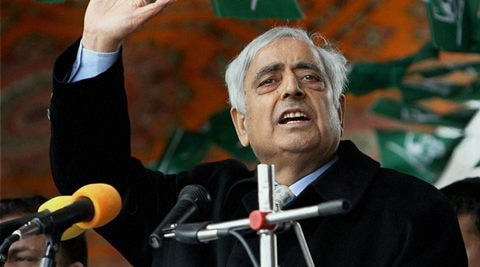
Mufti Mohammad Sayeed lived many lives and wore several hats in his long political career. Journeying across parties, governments and ideologies, the man who constantly reinvented his politics leaves behind a complex legacy. An old-school politician, he had friends across the political spectrum while refusing to be constricted by any one platform. To him goes the credit for expanding the political space in Kashmir. When militant separatism altered the political map of J&K after 1989, his politics of outreach succeeded in addressing, if not bridging, the constituencies of both the separatists and the political mainstream. He crafted a nuanced Kashmiri regionalism that tempered the notion of separatism by talking about self-rule and autonomy within the ambit of the Indian state and cultivating friendly relations and building soft borders with Pakistan. Goli se nahi, baat banege boli se was his famous line that recalled Atal Bihari Vajpayee’s doctrine of “insaniyat” as the paradigm to settle the Kashmir issue and build trust with Pakistan. His skills in political management were such that he could even blunt the allegations that he was betraying the PDP’s mandate when he took the bold step, post poll, of allying with the BJP to form the government in 2015. Most recently, his statesmanship was on display when he became the first ally of the BJP to speak up and call for a response from the prime minister in the wake of the silence in the top echelons of the Modi government after the lynching at Dadri.
The last few years of Mufti’s politics seemed to be in sharp contrast to the early part of his career and it was Mufti’s achievement again that he took the rupture in his stride. He was a Congressman in the 1960s and 1970s when it was not profitable politically to be associated with that party in J&K. In the 1980s, when the NC and the Congress came close, he joined V.P. Singh’s Jan Morcha. His tenure as Union home minister in Singh’s National Front government is remembered for the hostage crisis when Kashmir militants kidnapped his daughter, Rubaiya, and forced the Centre to release militants in exchange for her freedom. Yet, in 1999, he resurrected his career and redrew the political map of J&K by floating the PDP along with his daughter, Mehbooba. If Mehbooba was the charismatic leader who built the organisation, Mufti was the glue that held the PDP together.